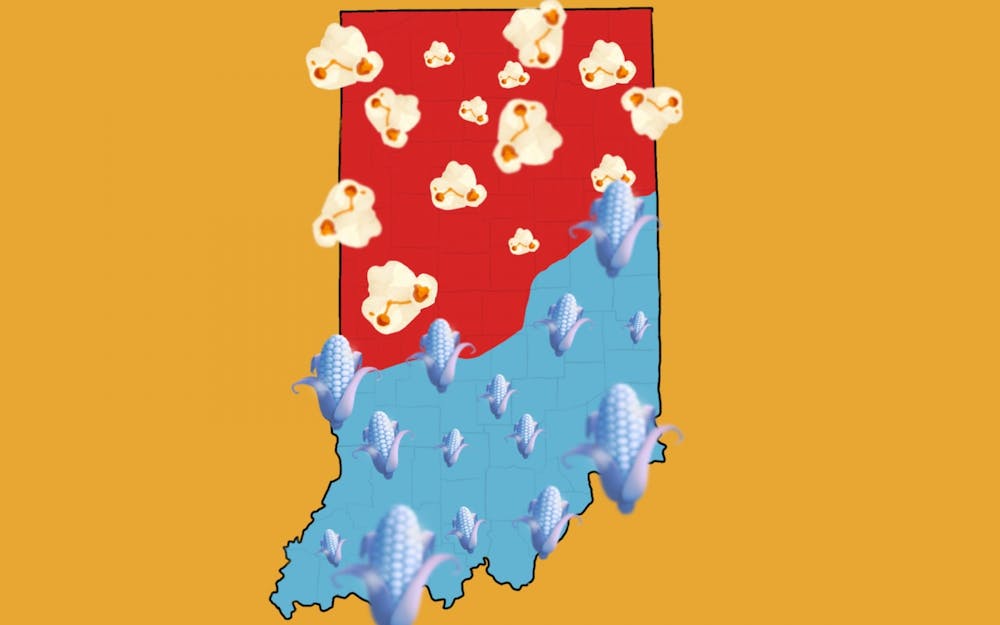On April 20, many parts of Indiana received a blanket of snow and freezing weather warnings. IU researchers said this can be attributed to climate change, and events like this are one of the many consequences Indiana residents could see in the future.
Cody Kirkpatrick, senior lecturer in the Department of Earth and Atmospheric Sciences, said the abnormal April 20 cold front and future cold fronts will happen more frequently because the jet stream, the band of air currents that control weather, is behaving differently than it used to.
“We know that the Arctic is warming faster than any other place on the planet and that it is disrupting the balance in temperatures across the globe,” Kirkpatrick said. “So it's a little bit like the Arctic regions are controlling our winter weather.”
Kirkpatrick said people in Indiana should expect hotter and drier summers and wetter winters with changing precipitation patterns.
“The rain and snow that we will get will not come as regularly as it does now,” Kirkpatrick said.
“It will come more in bursts, where we might get heavy rain or one big snow event and then not see any precipitation for a couple of weeks, so it will be less steady through the season.”
Other than changing weather patterns, researchers predict that climate change in Indiana will affect agriculture because of irregular precipitation and temperatures.
According to a Purdue University study on the effects of climate change in Indiana, changing climate will have severe outcomes for Indiana agriculture production. Indiana is ranked 11th in agriculture sales in the U.S., but increasing temperatures, changes in precipitation patterns and rising levels of carbon dioxide in the atmosphere could be harmful to production, according to the study.
Matthew Houser, a researcher in the Environmental Resilience Institute, is a social scientist who studies the factors shaping people’s climate change attitudes and behaviors in Indiana and the Midwest. He said Indiana farmers will be hit the hardest when dealing with climate change in the near future.
He said climate change will lengthen the growing season for crops in Indiana and has already lengthened it by two weeks since the 1950s. He said since farmers will begin to see earlier springs and experience more harmful frosts. Houser said farmers may plant their crops earlier because of the early warm weather, but then get hit with unexpected cold snaps that kill their produce.
Houser said he is concerned the snow last week could have set back Indiana farmers this year because some of them already began planting their crops, primarily corn.
“When unexpected frosts and snow pop up, they cause lots of damage, and these seemingly abnormal events are forming historically novel climatic conditions for Indiana farmers,” Houser said.






